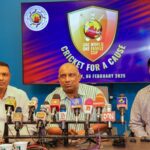UNDERSTANDING DEMENTIA AND SUPPORTING THOSE IN NEED – By Nisal Rukshan

 In a cycle of life, we encounter a series of changes that make each person’s life unique from the other. Among these changes, the ability to interact with others gives life its meaning. However there are moments such as instances of forgetfulness, when we may generally ask “Do you have dementia?”
In a cycle of life, we encounter a series of changes that make each person’s life unique from the other. Among these changes, the ability to interact with others gives life its meaning. However there are moments such as instances of forgetfulness, when we may generally ask “Do you have dementia?”
Is Dementia that simple to explain? The answer is no. Therefore, this article is written to provide sufficient knowledge about Dementia to help reduce the usage of the word in discussing it with others for simple issues.
In simple terms, Dementia derives from a set of symptoms that interfere with an individual’s daily functioning due to cognitive decline. During such events, a person may experience issues such as memory loss, complications of clear thinking, focusing issues, and an inability to control emotions.
Symptoms
In the context of Dementia, symptoms include confusion, difficulty recognizing others, challenges with reading and writing something, difficulty in speaking, hallucinations, delusions, paranoia, impulsivity, memory loss, poor judgement, disorientation of familiar environments, repetitive behavior, taking lomger to complete a task.
It’s very important to understand this: even if someone shows these cognitive and behavioural issues, we can only suspect Dementia. The specialized doctor must provide a clear diagnosis and certification through a proper medical examination.
Stages of Dementia
Afterward, the relevant stages of Dementia can be recognized; therefore, it is important to understand the stages along with their simple symptoms. According to medical specialists, the early stage of Dementia includes symptoms such as forgetfulness, losing track of time, and difficulty in recognizing familiar places. However, even with such behaviours, individuals can still operate independently.
Similarly, in the second stage of Dementia, symptoms may include forgetting recent events and names, easily causing confusion, difficulty communicating, and frequently asking the same questions. This stage is important because such individuals require support during daily activities, especially in areas such as personal hygiene.
The final stage of Dementia is referred to as late-stage Dementia. In this stage patients may shows the symptoms such as the loss of bladder or bowel control, delusions, hallucinations, memory loss on a larger scale, paranoia, and impaired mobility.

Diagnosis
In the modern world, with technology, the diagnosis of Dementia is not very complex. Tests with technologically connected CT scans and MRI Magnetic Resonance Imaging PET can easily identify the changes in the brain. Additionally, blood tests can provide clues, like measuring levels of beta-amyloid proteins associated with Alzheimer’s (the most common type of Dementia in the world).
Cognitive tests like solving problems, mental appreciation, situation handling language, etc, are also used as cognitive tests to diagnose Dementia.
Risk Factors
Like every disease Dementia has its own risk factors. Among these, age is a vital factor for people aged 65 and beyond, as recognized by medical experts. Similarly, family history also plays a substantial role in developing Dementia when growing old. Additionally, health conditions followed by TBI (Traumatic Brain Injuries) have also been identified as another factor. Furthermore, gender and race also seem to be average factors of concern thereby. On average, African American and Hispanic individuals have a higher risk of developing Dementia compared to White individuals, and some studies suggest that women are at greater risk than men.
When discussing Dementia, many people ask whether Alzheimer’s disease and Dementia are the same. The answer is Alzheimer’s disease is a specific type of Dementia while Dementia is a general term that refers to a group of symptoms affecting the brain.
Types of Dementia
There are several types of Dementia worldwide. According to the data, the following are the most common types:
- Alzaihmer is recognized as the most common type of Dementia. The individuals characterized by a slow, progressive degeneration of brain cells.
- Lewy Body Dementia: It involves a brain chemical process in which the protein alpha-synuclein is deposited in the brain. These deposits are called Lewy bodies. As a result, they lead to changes in the brain that results in complications with memory, movement, and behavior.
- Mixed Dementia: elaborates individuals who exhibit more than one type of Dementia at a time
- Vascular Dementia: This indicates reduced blood flow to the brain which results in deficiencies in cognitive abilities and executive functioning
Image Source : industrytap
Treatments for Dementia
The treatments include both medical and psychological approaches. A medical specialist will prescribe the medicines for Dementia which should be taken under supervision.
Psychological treatments include cognitive behavioural therapy (CBT), Cognitive Stimulation Therapy (group activities and exercises to improve memory, problem-solving skills, and language), cognitive rehabilitation (to practice skills to enhance day-to-day activities), reminiscence and life story work (talking about events from the past and using pictures, videos, etc. to improve), and a variety of other therapies.
How can we Assist someone with Dementia?
Alzheimers.gov, an official website of the United States, provides guidance to look after patients with Dementia and caregivers as follows:
For Everyday Care for People With Dementia
Try to keep a daily routine, such as bathing, dressing, and eating simultaneously.
Help the person to write to-do lists, appointments, and events in a notebook or a calendar.
Plan activities the person enjoys and try to do them simultaneously daily.
Consider a system or reminders for helping those who must take medications regularly.
When dressing or bathing, allow the person to do such things by themselves as much as possible.
Buy loose-fitting, comfortable, easy-to-use clothing, such as clothes with elastic waistbands, fabric fasteners, or large zipper pulls instead of shoelaces, buttons, or buckles.
Use a sturdy shower chair to support an unsteady person and prevent falls. Shower chairs are available at drug stores and medical supply stores.
Be gentle and respectful. Let the person knows what he should do, step by step, while you help them in bathing or dressing.
Serve meals in a consistent, familiar place and give the person enough time to eat.
Changes in Communication and Behavior
Reassure the person. Speak calmly. Listen to their concerns and frustrations. Try to show that you understand if the person is angry or fearful.
Allow the person to keep as much control in their life as possible. Respect the person’s personal space.
Build quiet times and activities into the day. Keep well-loved objects and photographs around the house to help the person feel more secure.
If the person doesn’t remember who you are, remind him or her, but try not to say, “Don’t you remember?”
Encourage a two-way conversation for as long as possible.
Try distracting the person with an activity, such as a familiar book or photo album, if you are having trouble communicating with words.
For a Healthy and Active Lifestyle
Consider different activities that the person can engage into stay active, such as household chores, cooking and baking, exercising and gardening. Match the activity to the individual’s abilities.
Help start an activity or join in to make it more enjoyable. People with Dementia may lack interest or initiative and may have difficulty starting activities. However, if others do the planning, they may join in.
Add music to exercises or activities if it helps motivate the person. Dance to the music if possible.
Be realistic about how much activity you can do at one time. Several short “mini-workouts” may be more effective.
Take a walk together each day. Exercise is good for caregivers, too!
Buy a variety of healthy foods, but consider easy-to-prepare foods such as premade salads and single portions.
Give the person choices about what to eat, for example, “Would you like yogurt or cottage cheese?”
For Home Safety
If you have stairs, make sure there is at least one handrail. You can also put carpet or safety grip strips on the stairs or mark the edges of steps with brightly colored tape so they are more visible. Insert safety plugs into unused electrical outlets and consider safety latches on cabinet doors.
Clear away unused items and remove small rugs, electrical cords, and other items the person may trip over.
Make sure all rooms and outdoor areas the person visits have good lighting. Remove curtains and rugs with busy patterns that may confuse the person. Remove or lock up cleaning and household products, such as paint thinner and matches.
References: https://www.alzheimers.gov/life-with-dementia/tips-caregivers
Verywellmind.com
Nisal Rukshan, MHRM, B.A. (Defence), BSc (Hons.) Counselling Psychology,
DCPsy, DOSH
Email: rukshan4slsr@gmail.com
If you missed Nisal Rukshans’ last Article – here it is! WILL AI COMMAND HUMANS EMOTIONALLY IN THE FUTURE? – By Nisal Rukshan





















